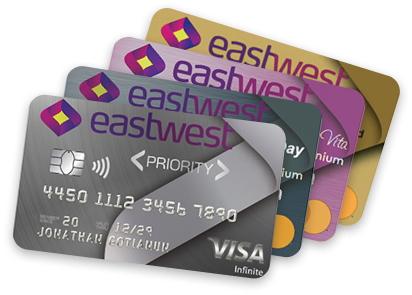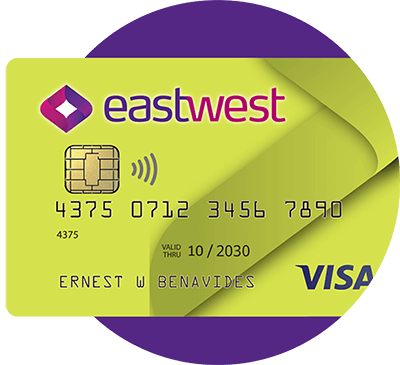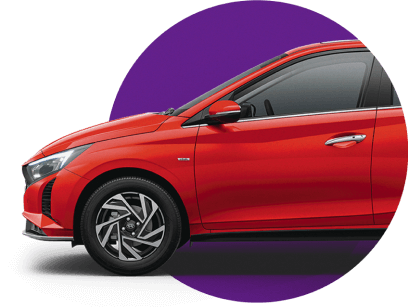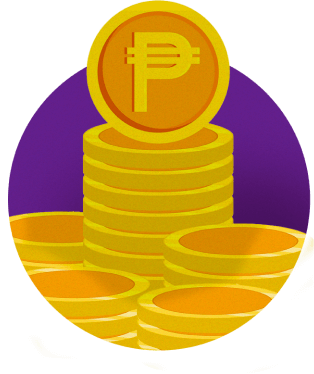For many Filipino families, borrowing money is often seen as a last resort, typically associated with financial mismanagement. While debt can be risky when mishandled, it's not inherently negative. In fact, under the right circumstances, taking on debt can be a smart and strategic financial decision.
Debt is a financial tool that can either harm or help, depending on how you use it. Being a responsible borrower means understanding your obligations, making informed choices, and using loans to improve your financial situation. This article explores how wisely used debt can support your goals and lead to long-term growth.
Building Credit and Establishing Financial Trust
Borrowing money—through consumer loans, credit lines, or credit cards—and repaying it on time builds trust with lenders. In the Philippines, formal lenders report your payment history to credit bureaus, creating a personal credit profile that financial institutions review when you apply for loans or other services. A positive credit history improves your approval chances and can lead to lower interest rates and better terms.
If you've never borrowed money, qualifying for a major loan can be difficult due to a lack of track record. That's why responsible borrowing, even for small amounts like mobile phone plans or personal loans, can be beneficial. Paying on time, keeping balances low, and borrowing only what you can afford are key to maintaining a healthy credit standing.
Investing in Education and Career Advancement
Education is crucial for professional success. Taking out a loan to finance your child's education or your own skills training can unlock better job opportunities and career growth. Whether for a college degree, short courses, or technical training, these credentials can increase earning potential. In the Philippines, financing options include school partnerships, bank loans, private lenders, and government programs. Choosing a practical and employable field of study makes this type of debt a long-term investment.
The key is understanding how much you're borrowing and ensuring your expected income can support repayment, especially for your own schooling. For example, a caregiver course funded by a small loan could lead to overseas work with a significant income boost. Responsible borrowing for education means aligning your course of study with career goals and budgeting for repayment early on.
Becoming a Homeowner and Growing Equity
Owning a home is a significant goal for many Filipinos. A mortgage allows you to acquire property while spreading payments over time. Pag-IBIG Fund or bank housing loans offer affordable monthly terms with competitive interest rates. Unlike rent, which doesn't build assets, mortgage payments help you build ownership in an appreciating asset. EastWest's home loans, for instance, offer terms up to 30 years with rates as low as 9%, helping achieve homeownership dreams.
As you pay off your loan, your equity (the portion of the home you own) increases. While real estate can contribute to long-term wealth, homeownership comes with financial responsibilities. It's crucial to fully understand loan terms, interest structure, and total ownership costs before committing.
Starting or Improving a Business
One practical way to grow your income is by borrowing money to fund a business. From sari-sari stores to online selling or food stalls, small business loans enable aspiring entrepreneurs to invest in inventory, marketing, equipment, and other needs. In the Philippines, banks, microfinance groups, cooperatives, and government agencies like the Department of Trade and Industry (DTI) offer financing for MSMEs (micro, small, and medium enterprises).
Before taking on a business loan, have a solid plan for how the money will be used and repaid. Responsible borrowers calculate expected earnings, consider seasonal challenges, and track expenses. Used wisely, business debt can unlock opportunities and turn part-time efforts into sustainable ventures.
Financing a Vehicle for Convenience or Productivity
Purchasing a vehicle through a loan is common in the Philippines. Whether for a family car, a motorcycle for commuting, or a delivery van for business, vehicles are often essential for daily life and income generation. Banks and auto financing companies offer various options, making vehicle ownership accessible without upfront full payment. EastWest's auto loans, for example, require a minimum 20% down payment and offer up to 60 months to pay, making commuting and business errands more convenient.
Knowing your purpose and budget is essential for responsible vehicle financing. If the car supports your work or improves earning capacity (e.g., for ride-hailing, deliveries, or field work), it may justify the loan cost. However, consider other expenses like fuel, maintenance, insurance, and registration fees. Before signing, compare financing options, understand your monthly obligation, and ensure it fits comfortably into your budget.
Restructuring Existing Debt to Reduce Financial Burden
Debt consolidation is a strategy to reduce stress and manage multiple obligations. It involves combining existing high-interest debts into a single loan with a lower interest rate, simplifying finances and potentially reducing monthly payments. This is particularly useful for managing multiple credit cards, salary loans, or informal debts.
However, debt restructuring is effective only when accompanied by behavioral changes. Avoid taking on new debts until current obligations are under control. Set a fixed budget, cut unnecessary expenses, and commit to repaying the consolidated loan on time. This holistic approach provides a clearer path toward becoming debt-free.
Facing Emergencies with Responsible Borrowing
Unexpected events like medical emergencies, job loss, or natural disasters can strain finances. Beyond an emergency fund, access to a loan or credit line during these times provides a safety net. Government programs like SSS calamity loans or personal bank loans can cover urgent expenses without resorting to high-interest informal lenders that negatively impact your financial future.
Emergency borrowing should be used cautiously. Only borrow what is needed and avoid turning temporary relief into long-term financial strain. The goal is to use credit to navigate difficult times, then focus on repaying the loan as soon as you're back on your feet.
Using Credit Tools to Your Advantage
Credit cards can be powerful financial tools when used properly. They offer convenience, installment payment options, and even cashback or rewards. Many Filipinos use cards for bill payments, online shopping, or cash flow management. By paying off your balance in full each month, you can enjoy the benefits without incurring interest.
Problems arise when people overspend or pay only the minimum due, leading to ballooning interest charges and potential default. To use credit cards wisely, always know your limits, track expenses, and treat your card as cash that needs to be repaid within weeks, not as extra income.
Seizing Low-Interest Borrowing Opportunities
Timing can matter when borrowing money. Banks and government lenders occasionally offer lower interest rates or relaxed requirements. If you need to make a large essential purchase, look for these limited time offers to stretch your money.
Taking advantage of such opportunities makes sense if you have a clear purpose for the loan and a repayment plan. Always compare lenders, read the fine print, and avoid borrowing just because it's available, or the terms seem favorable. Purposeful borrowing ensures you're not adding unnecessary financial pressure.
Debt isn't always a sign of trouble. Used wisely, it can help you build credit, expand your earning capacity, or overcome emergencies. What matters is how and why you borrow. Before applying for any loan, ask yourself if borrowing moves you closer to financial stability or further away. When the answer is rooted in purpose and discipline, debt becomes more than an obligation—it can be a stepping stone to a stronger financial future.
Apply for EastWest Credit Card?
With a variety of options to suit different needs, EastWest Bank offers competitive rates, valuable rewards, and excellent customer service.









